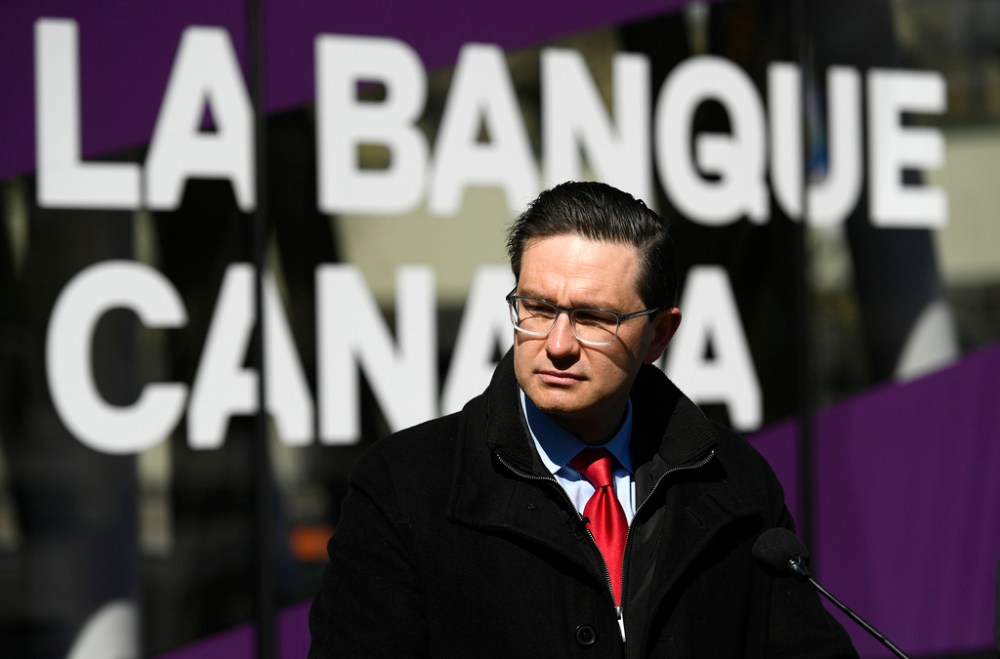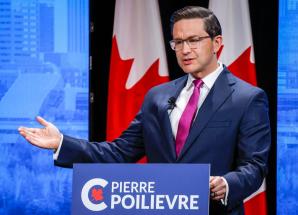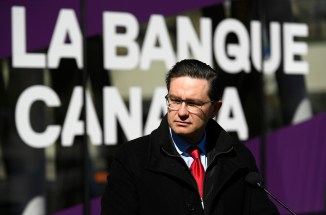Rash pledge shreds Poilievre’s credibility
Read this article for free:
or
Already have an account? Log in here »
To continue reading, please subscribe:
Monthly Digital Subscription
$0 for the first 4 weeks*
- Enjoy unlimited reading on winnipegfreepress.com
- Read the E-Edition, our digital replica newspaper
- Access News Break, our award-winning app
- Play interactive puzzles
*No charge for 4 weeks then price increases to the regular rate of $19.00 plus GST every four weeks. Offer available to new and qualified returning subscribers only. Cancel any time.
Monthly Digital Subscription
$4.75/week*
- Enjoy unlimited reading on winnipegfreepress.com
- Read the E-Edition, our digital replica newspaper
- Access News Break, our award-winning app
- Play interactive puzzles
*Billed as $19 plus GST every four weeks. Cancel any time.
To continue reading, please subscribe:
Add Free Press access to your Brandon Sun subscription for only an additional
$1 for the first 4 weeks*
*Your next subscription payment will increase by $1.00 and you will be charged $16.99 plus GST for four weeks. After four weeks, your payment will increase to $23.99 plus GST every four weeks.
Read unlimited articles for free today:
or
Already have an account? Log in here »
Hey there, time traveller!
This article was published 13/05/2022 (1305 days ago), so information in it may no longer be current.
Pierre Poilievre’s irresponsible comments about the Bank of Canada’s governor show how dreadful he would be as this country’s prime minister.
The outspoken Conservative MP and candidate for the party’s leadership offered his style of Trumpian rhetoric during a debate Wednesday in Edmonton, where he promised to fire Tiff Macklem, the central bank’s governor, upon taking over Canada’s top political job.
Mr. Poilievre’s cadre of extremist supporters bathed him in applause when he added woeful name-calling to his lamentable diatribe, claiming Mr. Macklem has allowed himself to become the federal government’s bank machine and has reneged on the bank’s mandate to keep inflation low.

The debate tactics may have come across as an off-the-cuff retort during the heat of a verbal showdown, but few should be fooled by his antics, which have become commonplace in the House of Commons and during the leadership campaign.
This was hardly an accidental gaffe in an age when politicians dare not veer an iota from their debate talking points.
His dangerous statements were planned to trigger the Conservatives’ unsavoury elements he hopes will lift him to the Conservative leadership; however, they also send uneasy signals to global companies and investors who seek stability when investing billions in Canada’s economy, rather than the threat of chaos Mr. Poilievre’s promise offers.
This kind of rabble-rousing shows how little Mr. Poilievre and his backers know what the Bank of Canada does, and how its independence from political brinkmanship is a tradition that has served Canada and its economy for nearly a century. It also shows what Canada would lose should Mr. Poilievre become prime minister and fulfil his pledge to give Mr. Macklem the boot.
Mr. Macklem has a PhD in economics and has built a career in public service going back to 1984 with the Bank of Canada and the federal department of finance. His years of knowledge of how the bank manages the country’s monetary policy, money supply and foreign currency reserves are apparently meaningless to Mr. Poilievre’s economic aims.
Mr. Macklem was also an associate deputy minister of finance, including during the global financial crisis in 2007 and 2008, when risky financial schemes created by some of the world’s largest private financial companies battered world economies.
Mr. Poilievre would bid adieu to that first-hand experience about how bad decisions can cause crippling recessions.
The federal government appointed Mr. Macklem to a seven-year term as governor in 2020 because he was qualified to do the job rather than being a political crony. His hiring was praised by Bay Street executives as well as Mark Carney, who has governed both the Bank of Canada and Bank of England.
In spite of all that, Mr. Poilievre believes he can find someone better, or more likely, someone who would follow in lockstep with his austerity-filled promises he passes off as an economic policy.
Some of his Conservative leadership rivals rightly castigated Mr. Poilievre over his comments, with Jean Charest and Leslyn Lewis saying members of Parliament have no business meddling in how Bank of Canada officials do their work.
Until Mr. Poilievre learns the value of Canadian financial traditions, especially the independent work of the Bank of Canada, he will remain an unsuitable candidate for the jobs he seeks and ought to be shuffled off to the Conservative scrap heap where the party’s last three leaders reside.










